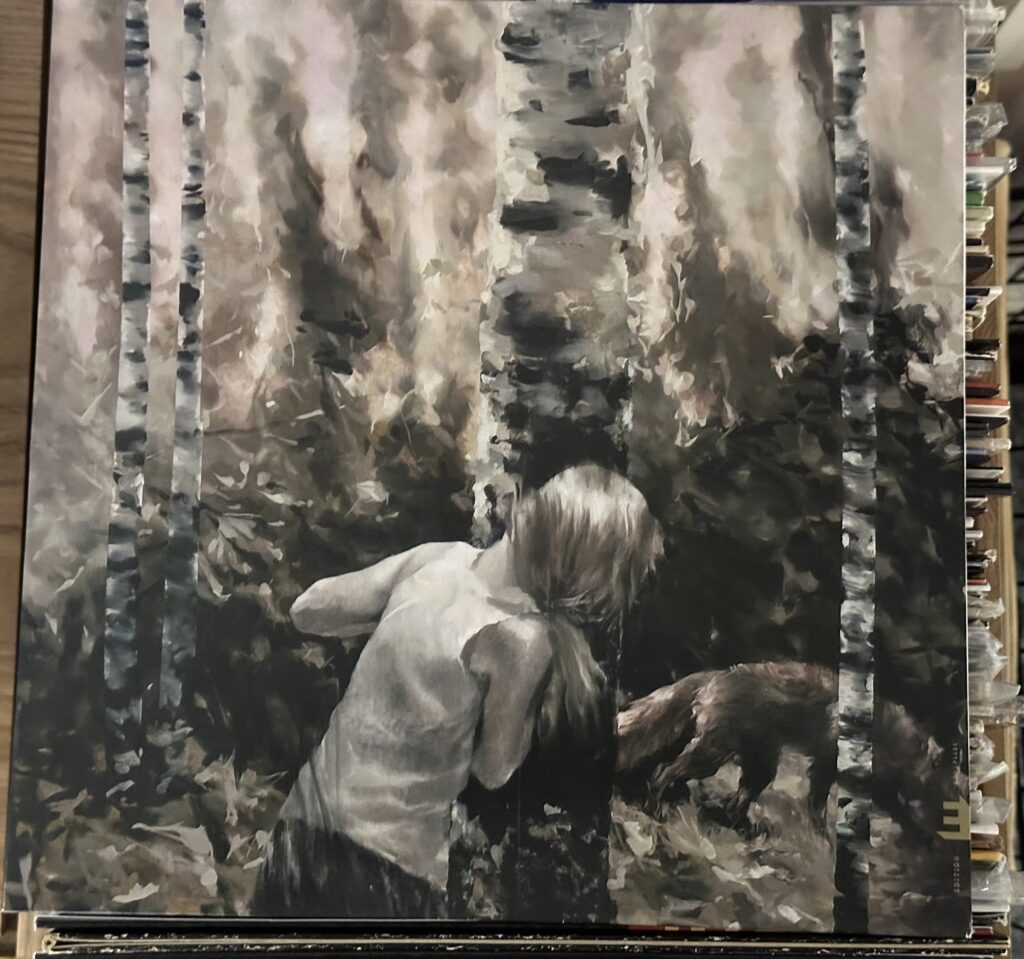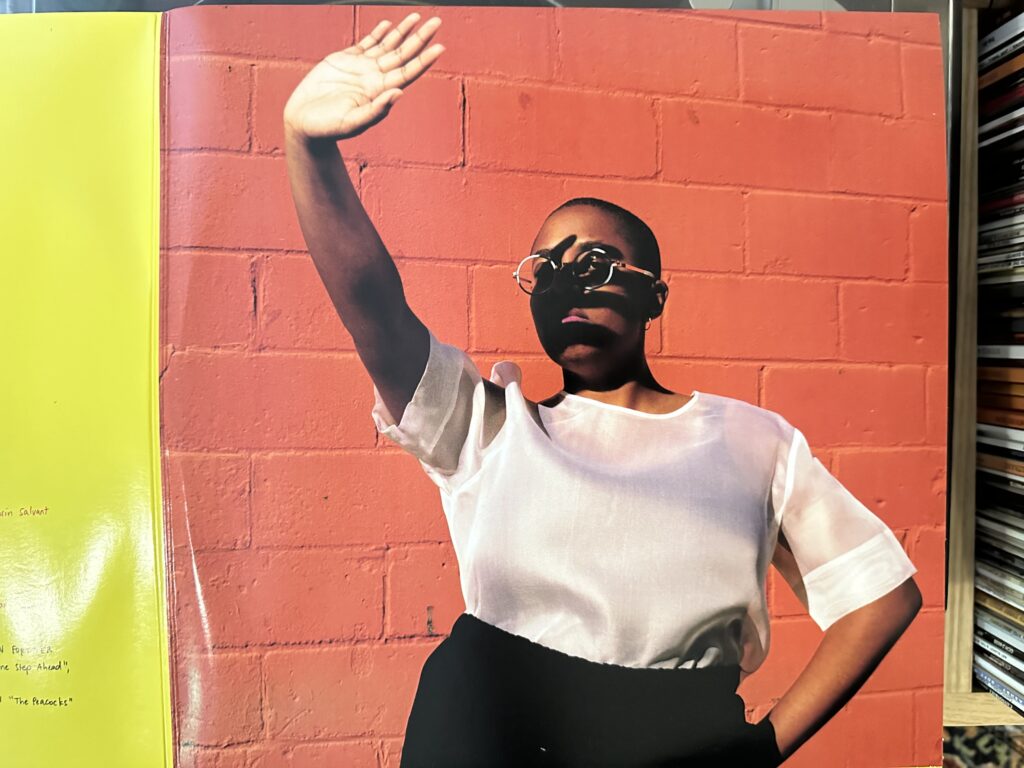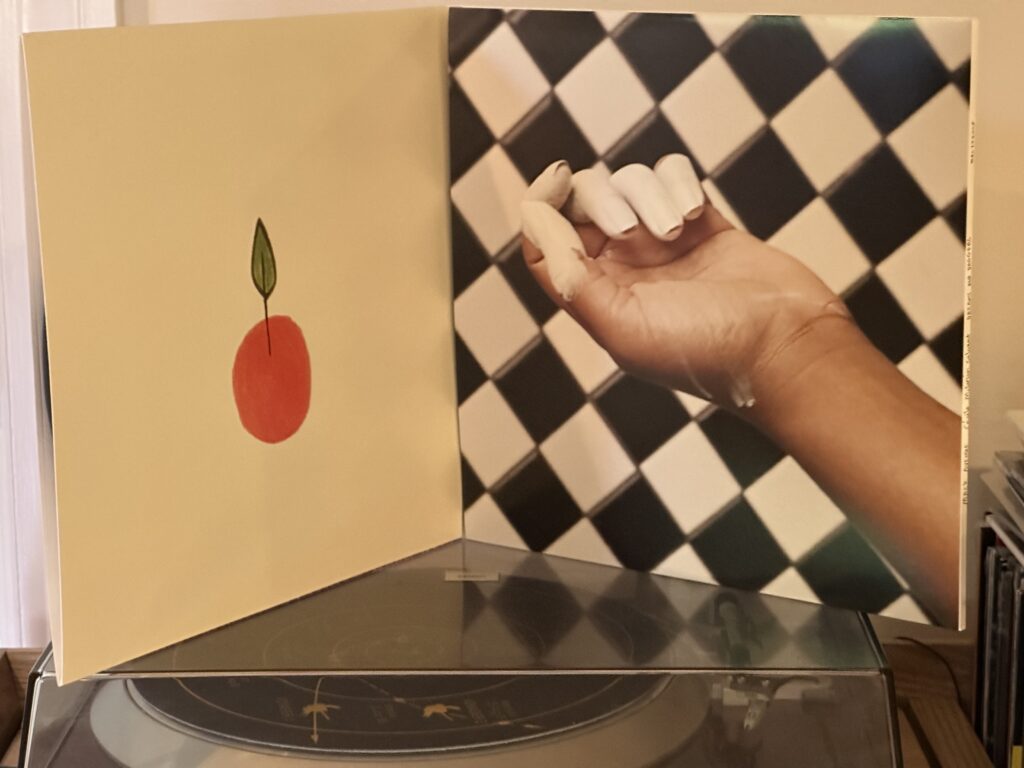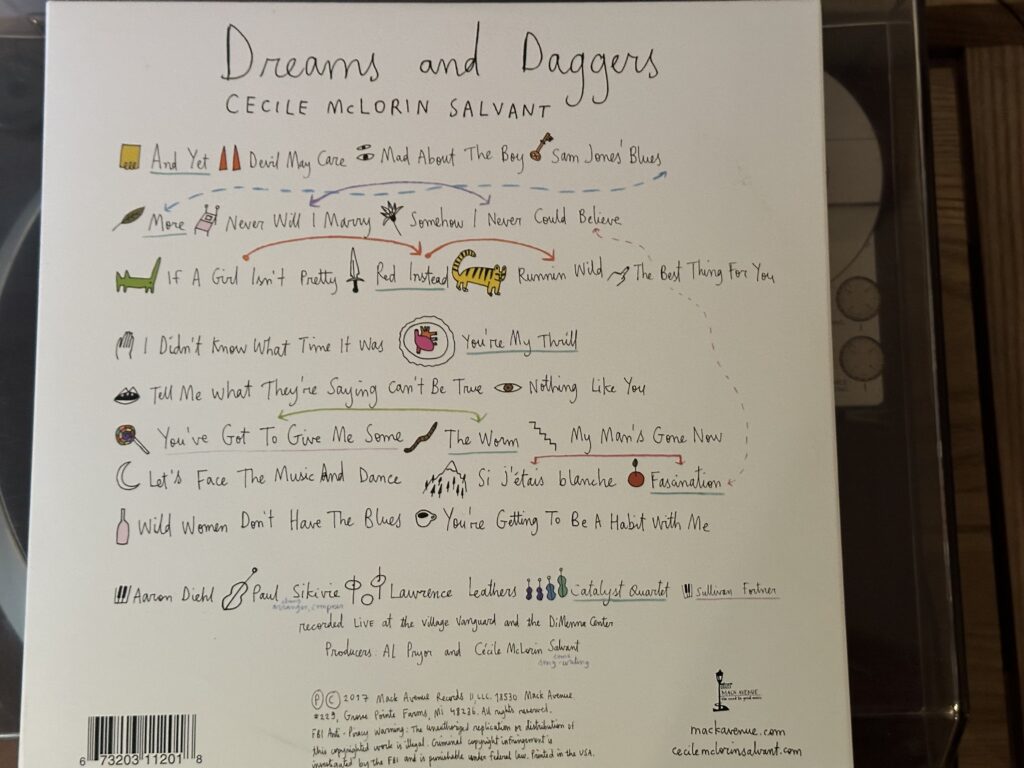
Album of the Week, July 27, 2024
After winning his second Grammy award for Secrets are the Best Stories, what did Kurt Elling do? He could easily have repeated the formula or continued collaborating with Danilo Pérez. He could’ve made another album with Branford Marsalis. He could’ve even taken some time off. Instead—in the depths of the pandemic—he made a sharp left turn into a completely different sound.
SuperBlue has some similarities to Elling’s earlier albums. There are sharp lyrics in his vocalese. There’s a top notch band—though its composition is markedly different than what went before. There’s also genius adaptations of unadaptable instrumental jazz tunes into singable melodies, in this case an astonishing cover of a late Wayne Shorter tune.
But those differences… The biggest is the presence of guitarist Charlie Hunter. Hunter’s an innovator not just in guitar technique but in the design of the instrument. He began his career playing seven-string guitar in the Disposable Heroes of Hiphoprisy; the custom-built instrument allowed him to provide both guitar and bass lines simultaneously, a trick he also used on his Blue Note Records debut in 1995 (this time on an eight-string guitar). Add drummer Corey Fonville, who has collaborated with traditional New Orleans trumpeter Nicholas Peyton and genre bender Christian Scott aTunde Adjuah, and Richmond, VA based keyboard player and producer DJ Harrison, and you have a very different foundation for a Kurt Elling album. Think less jazz contemplation and more jazz-funk.
But the band didn’t get together in the studio; due to COVID-19, they initially exchanged tracks and ideas online, building the basic tracks asynchronously; eventually Elling and Hunter met up in a barn in Illinois to add vocals and guitar. You can’t tell; the band sounds tight and funky throughout from the first notes of “SuperBlue,” as they give an out of time introduction before they drop into the funky pocket and Elling intones “The important thing is to pull yourself up by your own hair to turn yourself inside out and see the world with fresh eyes” (quoting Marat/Sade). Makes a pretty good manifesto for the experiment!
“Sassy” is a recasting of Manhattan Transfer’s tribute to Sarah Vaughan from their 1991 album The Offbeat of Avenues, and both Elling’s upper range and his inner beatnik poet get a workout. There’s some great Fender Rhodes work from Harrison here too. The Fender shows up on the next track too, the original “Manic Panic Epiphanic,” and it’s a great funky ballad that interpolates falsetto choruses and “He’s Got the Whole World In His Hands.” The statement of hope at the core of the song is striking even before you realize that it was written in the darkest days of the pandemic.
Elling doesn’t abandon his bag of tricks, and he goes to the vocalese well for “Where To Find It,” improbably written atop Wayne Shorter’s Grammy-winning “Aung San Suu Kyi.” Hunter finds the groove in the underbelly of Shorter’s tune, and he and Fonville stay in the engine room, stoking the fires from the pocket. Meanwhile Elling’s lyrics veer from the philosophical to the poetic to the downright Buddhist: “The snowfall tracks speak to one other… Find it in becoming/drumming like a running wind horse carrying your foreshadowing…”
“Can’t Make It With Your Mind” veers into a different lane, with Elling delivering a fast-paced diss track to an attractive woman in a bar who immediately turns off the narrator when she reveals she’s a Q-Anon true believer: “I wish you’d kept it on the physical plane/‘Cause I can’t make it with your brain.” Elling follows up the story with a series of imagined tabloid headlines, underscoring the looney tunes credulity of the conspiracy theorist.
Cody Chesnutt’s “The Seed” would seem an odd choice for an ordinary jazz musician, but it’s right up this band’s alley. The SuperBlue version feels like an old school soul number with a little extra abrasive guitar for color. The original tune “Dharma Bums” brings the beatnik back, with a hefty dose of Kerouac mixed in alongside some straight up silliness. “Cause when the night falls & stars shed their sparkler dims & don’t you know that God is Pooh-Bear
holding out his honeyed paws to both of us from way out there?” Well, no, I didn’t know that, actually.
“Circus” provides a new soundtrack for the Tom Waits and Kathleen Brennan short story from his 2004 album Real Gone. Elling narrates the story with a straight face, despite the references to “Horse Faced Ethel” and “One Eyed Myra.” The backing track is a frantic funk groove fueled by Hunter’s guitar and Fonville’s kit, and the band sounds like they could stay there all day.
The mood shifts for “Endless Lawns,” a reworking of an earlier Elling song (based on a Carla Bley tune from her 1987 album Sextet) from his 2018 album The Questions. There’s more funk and grit in this version, and a hefty shot more swing too—and an interpolation of Judith Minty’s poem “Sailing by Stars.” It sounds like an overloaded mess, but it all fits together thanks to the band’s delicate touch and Elling’s soulful delivery. “This Is How We Do,” the closing track, feels a bit like a band theme, an endless loop of a motto. It’s fit for purpose, and you can imagine the band closing out a set in a club with it.

Throughout SuperBlue, Elling sounds like he’s having a blast, as though he’s floating free from the weighty concerns of his last few albums. That might be why he didn’t zag after this zig; he kept working with the SuperBlue group, as we’ll hear in a few weeks. Next week, though, we’ll check in with Cécile McLorin Salvant and see how she spent the pandemic.
You can listen to this week’s album here:










